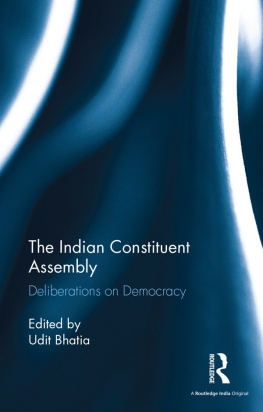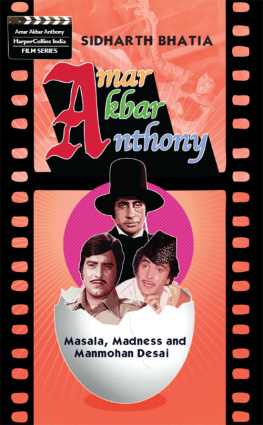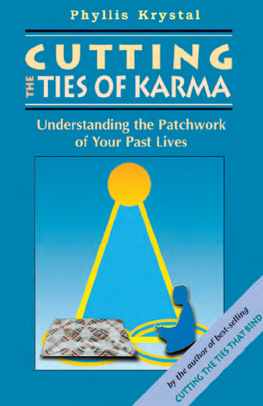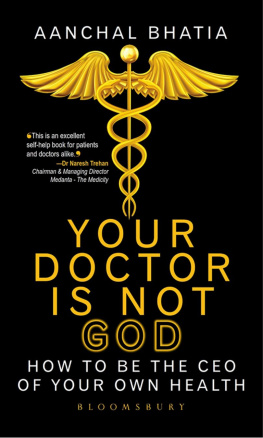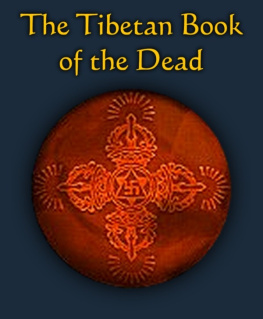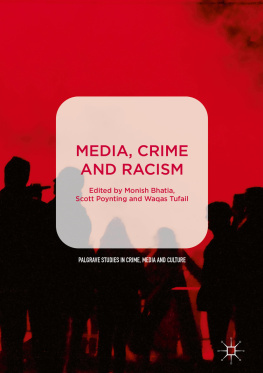Bhatia - American Karma
Here you can read online Bhatia - American Karma full text of the book (entire story) in english for free. Download pdf and epub, get meaning, cover and reviews about this ebook. City: New York, year: 2007, publisher: University Press, genre: Politics. Description of the work, (preface) as well as reviews are available. Best literature library LitArk.com created for fans of good reading and offers a wide selection of genres:
Romance novel
Science fiction
Adventure
Detective
Science
History
Home and family
Prose
Art
Politics
Computer
Non-fiction
Religion
Business
Children
Humor
Choose a favorite category and find really read worthwhile books. Enjoy immersion in the world of imagination, feel the emotions of the characters or learn something new for yourself, make an fascinating discovery.

American Karma: summary, description and annotation
We offer to read an annotation, description, summary or preface (depends on what the author of the book "American Karma" wrote himself). If you haven't found the necessary information about the book — write in the comments, we will try to find it.
American Karma — read online for free the complete book (whole text) full work
Below is the text of the book, divided by pages. System saving the place of the last page read, allows you to conveniently read the book "American Karma" online for free, without having to search again every time where you left off. Put a bookmark, and you can go to the page where you finished reading at any time.
Font size:
Interval:
Bookmark:
Thank you for buying this ebook, published by NYU Press.
Sign up for our e-newsletters to receive information about forthcoming books, special discounts, and more!
Sign Up!
A publisher of original scholarship since its founding in 1916, New York University Press Produces more than 100 new books each year, with a backlist of 3,000 titles in print. Working across the humanities and social sciences, NYU Press has award-winning lists in sociology, law, cultural and American studies, religion, American history, anthropology, politics, criminology, media and communication, literary studies, and psychology.
AMERICAN KARMA
QUALITATIVE STUDIES IN PSYCHOLOGY
This series showcases the power and possibility of qualitative work in psychology. Books feature detailed and vivid accounts of qualitative psychology research using a variety of methods, including participant observation and fieldwork, discursive and textual analyses, and critical cultural history. They probe the vital issues of theory, implementation, interpretation, representation, and ethics confronting qualitative workers. The mission of this series is to enlarge and refine the repertoire of qualitative approaches to psychology.
GENERAL EDITORS
Michelle Fine and Jeanne Marecek
Everyday Courage: The Lives and Stories of Urban Teenagers
Niobe Way
Negotiating Consent in Psychotherapy
Patrick ONeill
Flirting with Danger: Young Womens Reflections on Sexuality and Domination
Lynn M. Phillips
Voted Out: The Psychological Consequences of Anti-Gay Politics
Glenda M. Russell
Inner City Kids: Adolescents Confront Life and Violence
in an Urban Community
Alice McIntyre
From Subjects to Subjectivities: A Handbook of Interpretive and
Participatory Methods
Edited by Deborah L. Tolman and Mary Brydon-Miller
Growing Up Girl: Psychosocial Explorations of Gender and Class
Valerie Walkerdine, Helen Lucey, and June Melody
Voicing Chicana Feminisms: Young Women Speak Out on and Identity
Aida Hurtado
Situating Sadness: Women and Depression in Social Context
Edited by Janet M. Stoppard and Linda M. McMullen
Living Outside Mental Illness: Qualitative Studies of Recovery in Schizophrenia
Larry Davidson
Autism and the Myth of the Person Alone
Douglas Biklen
With Sue Rubin, Tito Rajarshi Mukhopadhyay, Lucy Blackman, Larry Bissonnette,
Alberto Frugone, Richard Attfield, and Jamie Burke
American Karma: Race, Culture, and Identity in the Indian Diaspora
Sunil Bhatia
Race, Culture, and Identity in the Indian Diaspora
SUNIL BHATIA

NEW YORK UNIVERSITY PRESS
New York and London
www.nyupress.org
2007 by New York University
All rights reserved
Library of Congress Cataloging-in-Publication Data Bhatia, Sunil.
American karma : race, culture, and identity in the Indian diaspora / Sunil Bhatia.
p. cm. (Qualitative studies in psychology)
Includes bibliographical references and index.
ISBN-13: 978-0-8147-9958-1 (cloth : alk. paper)
ISBN-10: 0-8147-9958-2 (cloth : alk. paper)
ISBN-13: 978-0-8147-9959-8 (pbk. : alk. paper)
ISBN-10: 0-8147-9959-0 (pbk. : alk. paper)
1. East Indian AmericansSocial conditions. 2. East Indian AmericansEthnic identity. 3. ImmigrantsUnited StatesSocial conditions. 4. United StatesEthnic relations. 5. United StatesEmigration and immigration. 6. IndiaEmigration and immigration. I. Title.
E184.E2B497 2007
305.800973dc22 2007007864
New York University Press books are printed on acid-free paper,
and their binding materials are chosen for strength and durability.
Manufactured in the United States of America
c 10 9 8 7 6 5 4 3 2 1
p 10 9 8 7 6 5 4 3 2 1
For Anjali and Amit and Anusha
I owe this book to the intellectual, emotional, and moral support of my family, friends, colleagues, and students. At Connecticut College, I am thankful to my colleagues Peggy Sheridan, Michelle Dunlap, Jennifer Fredricks, Mike James, and Sandy Grande for creating a warm, supportive, and intellectually engaging culture of work in the department. In particular, I am deeply grateful to Peggy Sheridan for being a steady mentor and friend through the various phases of my career. It has been my good fortune and privilege to be a part of this department that she created with her vision and labor of love. The R. F. Johnson, Hodgkins, and Opatrny Summer Funds from Connecticut College granted me the opportunity to conduct my extensive fieldwork and interviews with the participants of the local Indian diaspora. I also extend my thanks to Mary Howard, whose keen editorial eye immeasurably refined and refocused my writing. I am thankful to my studentsMridula Swamy, Jessica Philips, and Rebecca Faganfor working as dedicated research assistants for this research project. In particular, I want to thank Mridula and Jessica for giving such meticulous help with transcription, photocopying, editing, and coding. The input given by students from my ethnography courses in HMD 201 and HMD 406 played a crucial role in refining and transforming the arguments in my book project.
Above all, the magnanimity of the Indian immigrant community in southeastern Connecticut made this book possible. I owe a great debt to my participants, who welcomed me into their homes and patiently allowed me to interview them. My deepest thanks goes to them for sharing their life stories as immigrants. Over several cups of garam chai and namkeen snacks, they eagerly shared with me their narratives and their interpretations and experiences of their migrant life in the United States. I express my deepest and sincere thanks to Barun Basu, who played the role of gatekeeper and connected me with several families who were willing to be interviewed for this project. I am very grateful to Adesh and Gayatri Saxena for making sure that my fieldwork and ethnography were successfully completed. Their hospitality, openness, generosity, and friendship made this project much more than just another research activity. They were my intellectual partners in the community, and their compassionate support and insightful interrogations pushed me to clarify even more the findings of the ethnography. I am sincerely thankful to Jasgit and Ranjana Bindra for their advice, friendship, and support of this book project. A very special thanks to Usha and Avinash Thombre for supporting this project and setting up numerous contacts with several members of the diaspora.
I hope that I have been able to convey in some authentic way a slice of the rich, unsettling, varied, and complex cultural lives of the participants in this study. This book is about Indian migrants: their family conversations, their expressions of identity, and their ways of interpreting the worlds they inhabit. However, in the process of making sense of their lives, I have learned a little more about my own migrant journey, and I thank them for enabling me to see my own history through their everyday lives.
I am immensely grateful to my teachers at Clark University: Nancy Budwig, Michael Bamberg, Bernie Kaplan, Jaan Valsiner, and Jim Wertsch. I would also like to acknowledge the intellectual support provided by Hubert Hermans, Ingrid Joseph, and Hank Stam. I owe a great deal of intellectual debt to the works of scholars outside my discipline, such as Alejandro Portes, Vijay Prashad, Susan Koshy, Sunaina Maira, Sandhya Shukla, Kamala Visweswaran, and Mary Waters.
Next pageFont size:
Interval:
Bookmark:
Similar books «American Karma»
Look at similar books to American Karma. We have selected literature similar in name and meaning in the hope of providing readers with more options to find new, interesting, not yet read works.
Discussion, reviews of the book American Karma and just readers' own opinions. Leave your comments, write what you think about the work, its meaning or the main characters. Specify what exactly you liked and what you didn't like, and why you think so.

